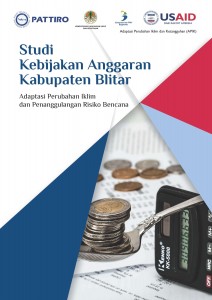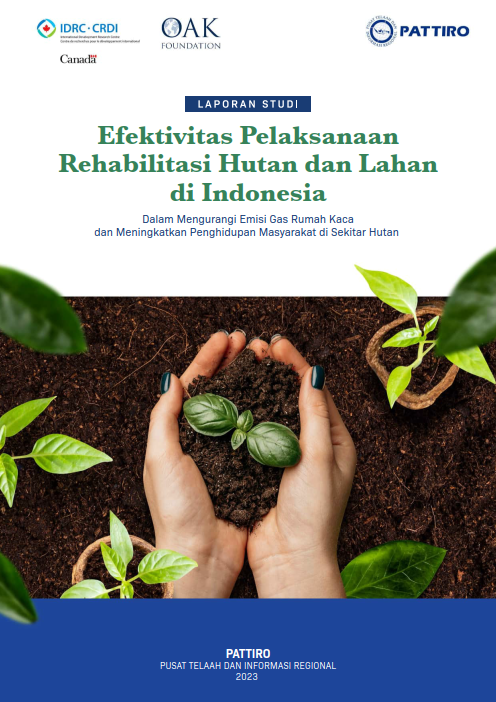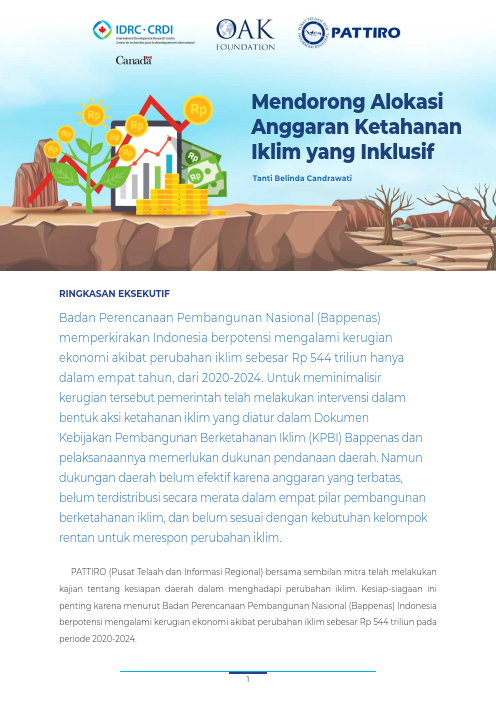 Climate change adaptation in the National Action Plan for Climate Change Adaptation (RAN-API), published by the Ministry of National Planning and Development in 2014, has the main objective of implementing a sustainable and highly resilient development system towards the impacts of climate change. The direction of climate change adaptation policy nationally is directed at two aspects, firstly, efforts to adjust in various forms to reduce the (negative) impacts of climate change to a minimum. The form of adjustment is in the form of strategies, policies, management, technologies and attitudes. Secondly, it is directed at reducing the impacts (consequences) caused by climate change. These include direct and indirect, continuous or discontinuous and permanent impacts.
Climate change adaptation in the National Action Plan for Climate Change Adaptation (RAN-API), published by the Ministry of National Planning and Development in 2014, has the main objective of implementing a sustainable and highly resilient development system towards the impacts of climate change. The direction of climate change adaptation policy nationally is directed at two aspects, firstly, efforts to adjust in various forms to reduce the (negative) impacts of climate change to a minimum. The form of adjustment is in the form of strategies, policies, management, technologies and attitudes. Secondly, it is directed at reducing the impacts (consequences) caused by climate change. These include direct and indirect, continuous or discontinuous and permanent impacts.
The government and regional governments are responsible for implementing disaster management. As defined in Law 24 of 2007 concerning Disaster Management, the implementation of disaster management is a series of efforts which include the establishment of development policies that are at risk of disasters, disaster prevention activities, emergency response and rehabilitation. Basically, the implementation is three stages, namely: 1) Pre-disaster, which includes situations where there is no disaster and the situation has a potential disaster; 2) Emergency Response, carried out in a disaster situation; and 3) Post-disaster, carried out during the time after the disaster.
In the implementation of disaster management, so that every activity in each stage can be directed, a specific plan is prepared at each stage of the implementation of disaster management. Disaster management planning is prepared based on the results of disaster risk analysis and mitigation efforts outlined in the disaster management activities program and budget. Disaster management planning is part of development planning. Every plan produced in this plan is a program/activity related to prevention, mitigation and preparedness that is included in the Regional Medium-Term Development Plan (RPJMD) as well as the annual Regional Government Work Plan (RKPD). The disaster management plan is determined by the regional government in accordance with their authorities for a period of 5 (five) years1. The RAN-API is expected to be used as input in preparing the RPJMD and RKPD, to be more responsive to the effects of climate change.
This study is limited to analyzing the program/activity budget based on Blitar Regency Regional Budget documents for 2015-2017, which are synergized with the Blitar Regency RPJMD document for 2016-2021, with reference to the RAN API document. Due to limited time and documents, this study is limited to the amount allocated in the program/activity budget, and does not observe the implementation of the budget, whether the planned program/activity budget allocation is in accordance with its designation to support the DRR API.




